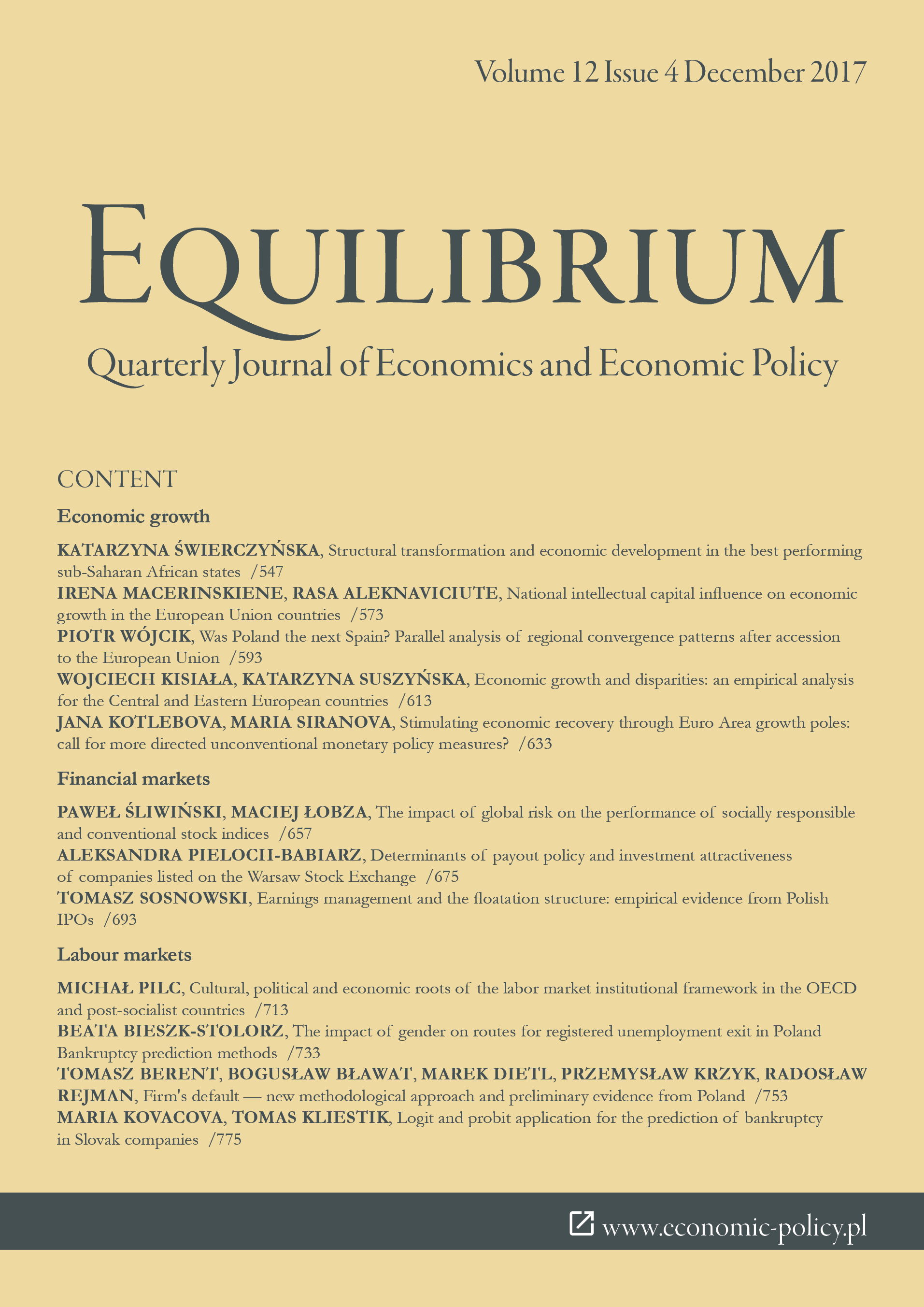National intellectual capital influence on economic growth in the European Union countries
National intellectual capital influence on economic growth in the European Union countries
Author(s): Irena Mačerinskienė, Rasa AleknavičiūtėSubject(s): Geography, Regional studies, National Economy, Supranational / Global Economy, Economic policy
Published by: Instytut Badań Gospodarczych
Keywords: national intellectual capital; human capital; structural capital; social capital; relational capital; economic growth;
Summary/Abstract: Importance of intangible resources for country’s economic growth is widely recognized. However, empirical evidence of this influence is hard to show due to measurement limitations of intangible resources. Majority of empirical studies concentrates on the analysis of a specific type of intangible resource’s influence on economic growth. National intellectual capital concept provides background for an integrated assessment of the country's intangible resources. This new approach enables the estimation of intangible resources’ influence to economic growth in a more complex way. Purpose of the article: a) To examine various scientific approaches of the national intellectual capital and its impact on the economic growth; b) to offer a measurement model of the national intellectual capital influence on economic growth; c) to evaluate the specific European Union countries’ intellectual capital’s effect on their economic growth. Methods: Econometric analysis; refined factor value computation method using the standardized regression coefficients; the SAW method; expert evaluation, cluster analysis; correlation and regression analyses. Findings & Value added: A review of the economic growth theories showed that structural components of intellectual capital (human capital, structural capital, social capital, relational capital) in economic growth theories are analyzed as key determinants of economic growth. Our proposed research methodology consists time lag between variables and this let us evaluate casual relation. Empirical analysis of 25 European Union countries’ intellectual capital’s effect on their economic growth rate revealed that national intellectual capital and the countries’ level of economic development have statistically significant impact on economic growth rate. The analysis of intellectual capital components’ influence on economic growth rate of 25 European Union countries showed that only human capital and the level of economic development have statistically significant influence. A more comprehensive human capital’s influence on economic growth analysis revealed that 63.1 percent of the longterm economic growth rate in 25 European Union countries can be explained by differences in their economic development level and differences in educational achievement factor values. Moreover, analysis of national intellectual capital effect on economic growth in separate clusters allowed to identify influence differences in each group of countries.
Journal: Equilibrium. Quarterly Journal of Economics and Economic Policy
- Issue Year: 12/2017
- Issue No: 4
- Page Range: 573-592
- Page Count: 20
- Language: English

